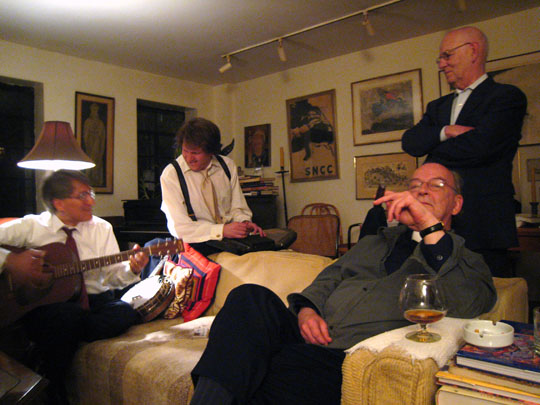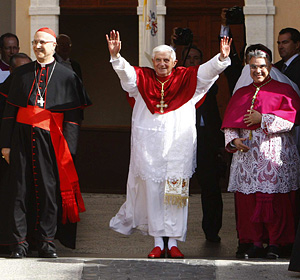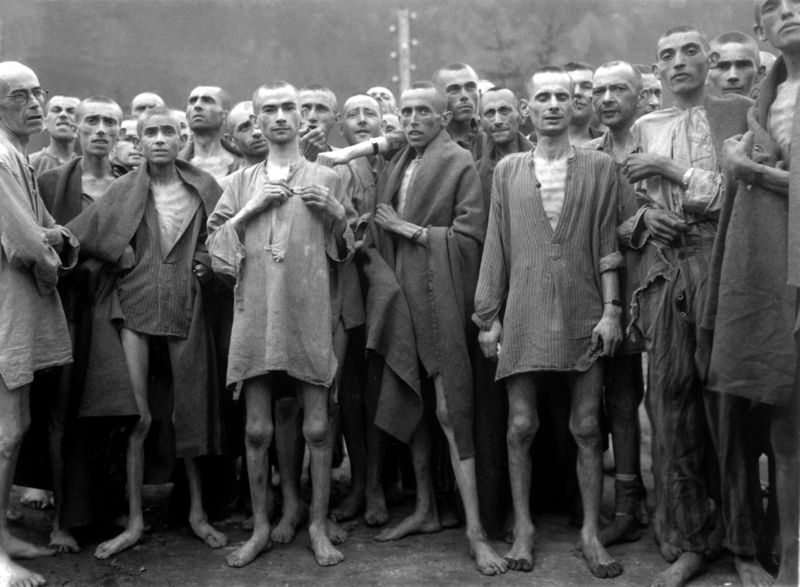 Father Neuhaus, the founder of the conservative ecumenical journal of religion and politics and culture and everything else, First Things, died this morning. The magazine longtime second-in-command, Jody Bottum, has this announcement:
Father Neuhaus, the founder of the conservative ecumenical journal of religion and politics and culture and everything else, First Things, died this morning. The magazine longtime second-in-command, Jody Bottum, has this announcement:
Fr. Richard John Neuhaus slipped away today, January 8, shortly before 10 o’clock, at the age of seventy-two. He never recovered from the weakness that sent him to the hospital the day after Christmas, caused by a series of side effects from the cancer he was suffering. He lost consciousness Tuesday evening after a collapse in his heart rate, and the next day, in the company of friends, he died.
My tears are not for him–for he knew, all his life, that his Redeemer lives, and he has now been gathered by the Lord in whom he trusted.
I weep, rather for all the rest of us. As a priest, as a writer, as a public leader in so many struggles, and as a friend, no one can take his place. The fabric of life has been torn by his death, and it will not be repaired, for those of us who knew him, until that time when everything is mended and all our tears are wiped away.
Funeral arrangements are still being planned; more information about the funeral will be made public shortly. Please accept our thanks for all your prayers and good wishes.
In Deepest Sorrow,
Joseph Bottum
Editor
First Things
Father Neuhaus was one of the more combative personalities in Catholicism and the country–not for nothing was he known as a leading theocon–but he was also one of the most colorful and generous of public figures to journos. And while Joseph Bottum will do just fine, I can’t imagine anyone being more prolific a writer than Neuhaus. I’m a longtime ROFTER (“Reader Of First Things,” for the unwashed) and always find it as illuminating as it is maddening–a great combo.
The picture above is a classic–a First Things hootenanny after their 2008 board meeting. From left, Robert George, Joseph Bottum, Robert Wilken (standing) and Richard John Neuhaus, seated in a characteristic pose, one might say.
RJN, RIP.
UPDATES:
Mark Silk has a characteristically perceptive take on Neuhaus, warts and all, though without transgressing the old commandment, de mortuis nihil nisi bonum. (As RJN might have put it.) Mark’s good insight is that Neuhaus, the Old Sixties Radical-turned-theocon, remained Neuhaus the Old Sixties Radical:
In the past year, the word on the street was that the Vatican had become displeased with him–something to do with his having taken a potshot or two at Benedict XVI’s American visitation. If so, it would not have been out of keeping with a certain irrepressible bomb-throwing side to his character that generally kept him this side of insufferability. The old antiwar activist was on display in the 1990s when he roiled the neocon waters by calling for civil disobedience against the American judicial system because of Roe v. Wade and its progeny. He never was afraid to question the legitimacy of the system.
In his last piece in First Things, copyrighted this month, Neuhaus goes on and on in praise of The Democratic Virtues of the Christian Right, a new book by Jon Shields of Claremont-McKenna College. Shields’ argument is that the Christian Right represents the realization of the anti-establishment vision of the radicals of the Sixties, and it’s easy to see why Neuhaus loved it (transposing “Christian right” into “pro-life movement”). By the lights of the culture, it represents an irony of American history. By his own, it proved he kept the faith.
John Allen’s write-up is here;
Michael Paulson has a good roundup of reax here…
First Things has also posted this 2000 essay by Neuhaus, “Born Toward Dying”about his recovery from an earlier bout with cancer:
“We are born to die. Not that death is the purpose of our being born, but we are born toward death, and in each of our lives the work of dying is already underway. The work of dying well is, in largest part, the work of living well.”
[snip]
“There is nothing that remarkable in my story, except that we are all unique in our living and dying. Early on in my illness a friend gave me John Donne’s wondrous Devotions Upon Emergent Occasions. The Devotions were written a year after Donne had almost died, and then lingered for months by death’s door. He writes, “Though I may have seniors, others may be elder than I, yet I have proceeded apace in a good university, and gone a great way in a little time, by the furtherance of a vehement fever.” So I too have been to a good university, and what I have learned, what I have learned most importantly, is that, in living and in dying, everything is ready now.”
And via Bruce Tomaso at the DMN, this Neuhaus classic on the First Estate’s view (well, at least from his pulpit) of we in the Fourth Estate–that is, the clerical view of the press:
An eager young thing with a national paper was interviewing me about yet another instance of political corruption. “Is this something new?” she asked. “No,” I said, “it’s been around ever since that unfortunate afternoon in the garden.” There was a long pause and then she asked, “What garden was that?” It was touching.
What prompts me to mention this today is that I’m just off the phone with a reporter from the same national paper. He’s doing a story on Pope Benedict’s new encyclical. In the course of discussing the pontificate, I referred to the pope as the bishop of Rome. “That raises an interesting point,” he said. “Is it unusual that this pope is also the bishop of Rome?” He obviously thought he was on to a new angle. Once again, I tried to be gentle. Toward the end of our talk, he said with manifest sincerity, “My job is not only to get the story right but to explain what it means.” Ah yes, he is just the fellow to explain what this pontificate and the encyclical really mean. It is poignant.

